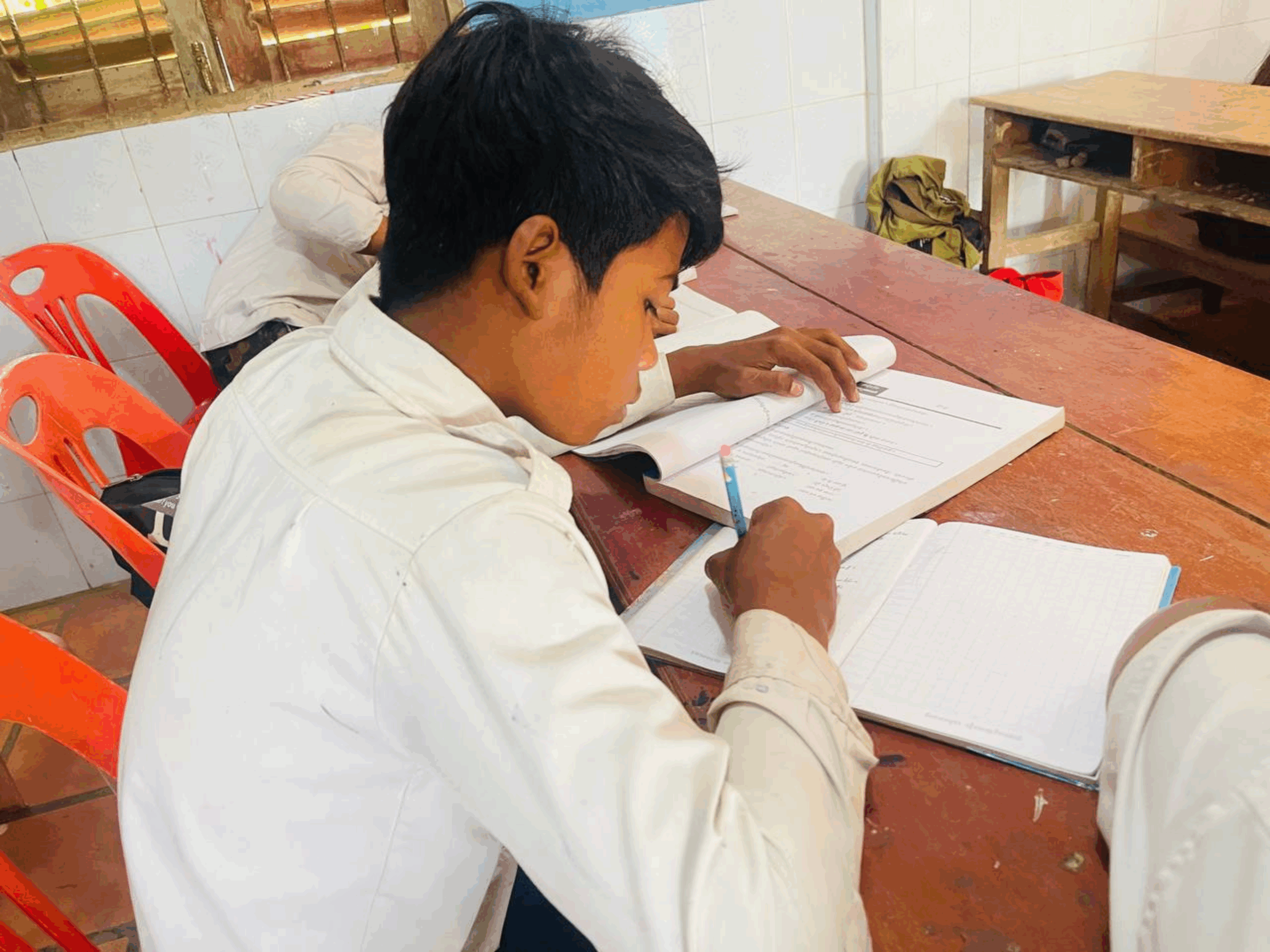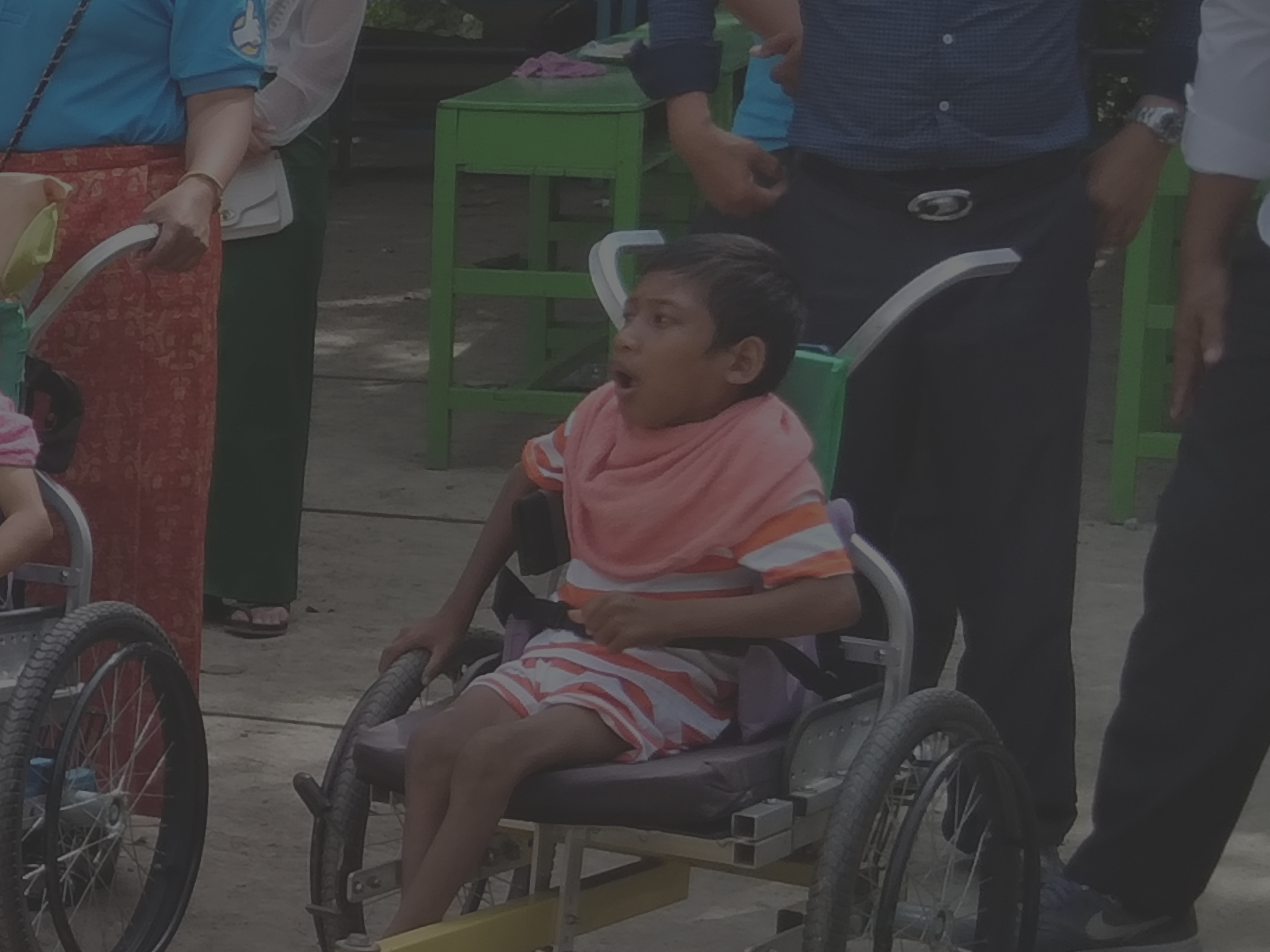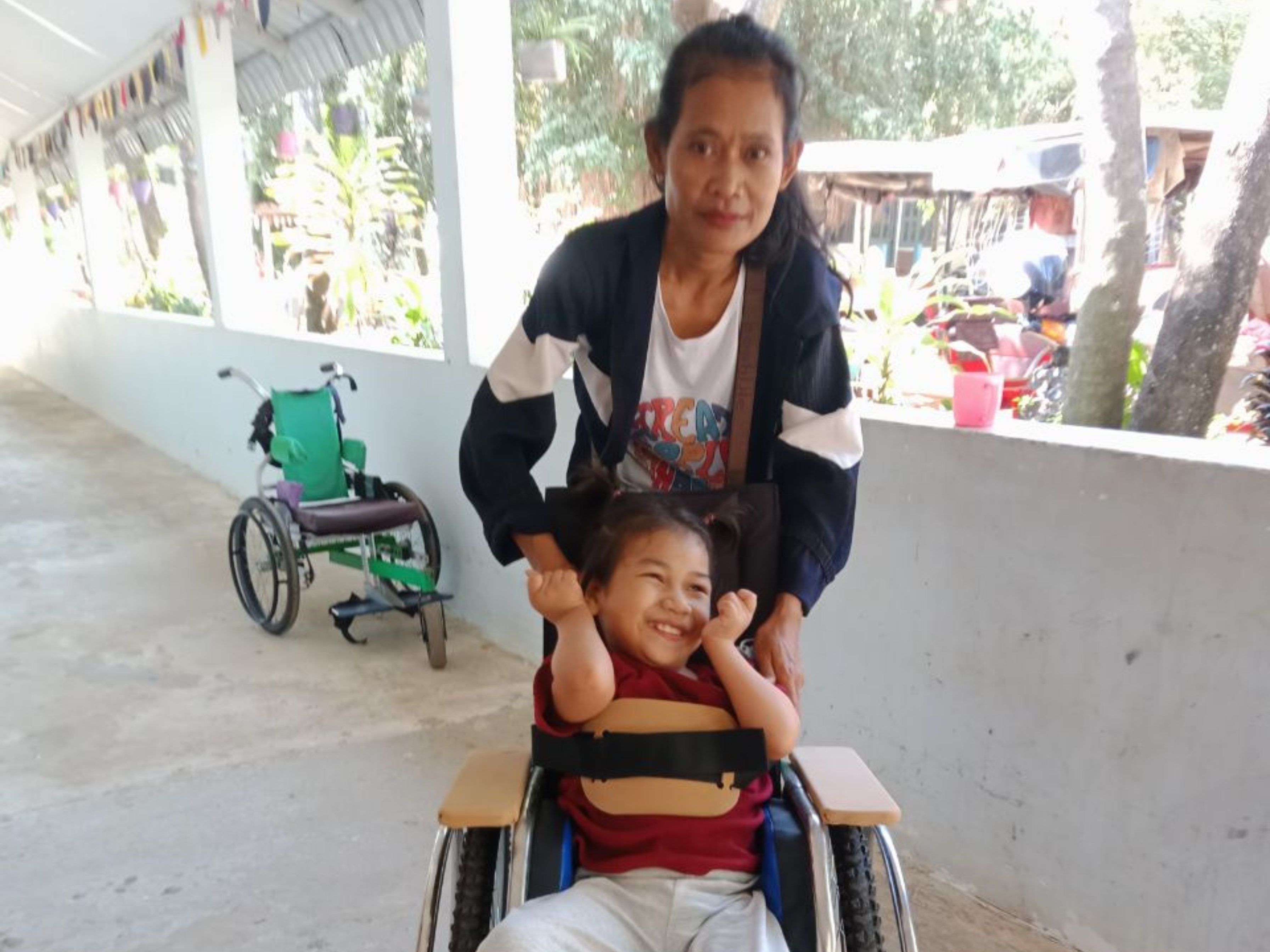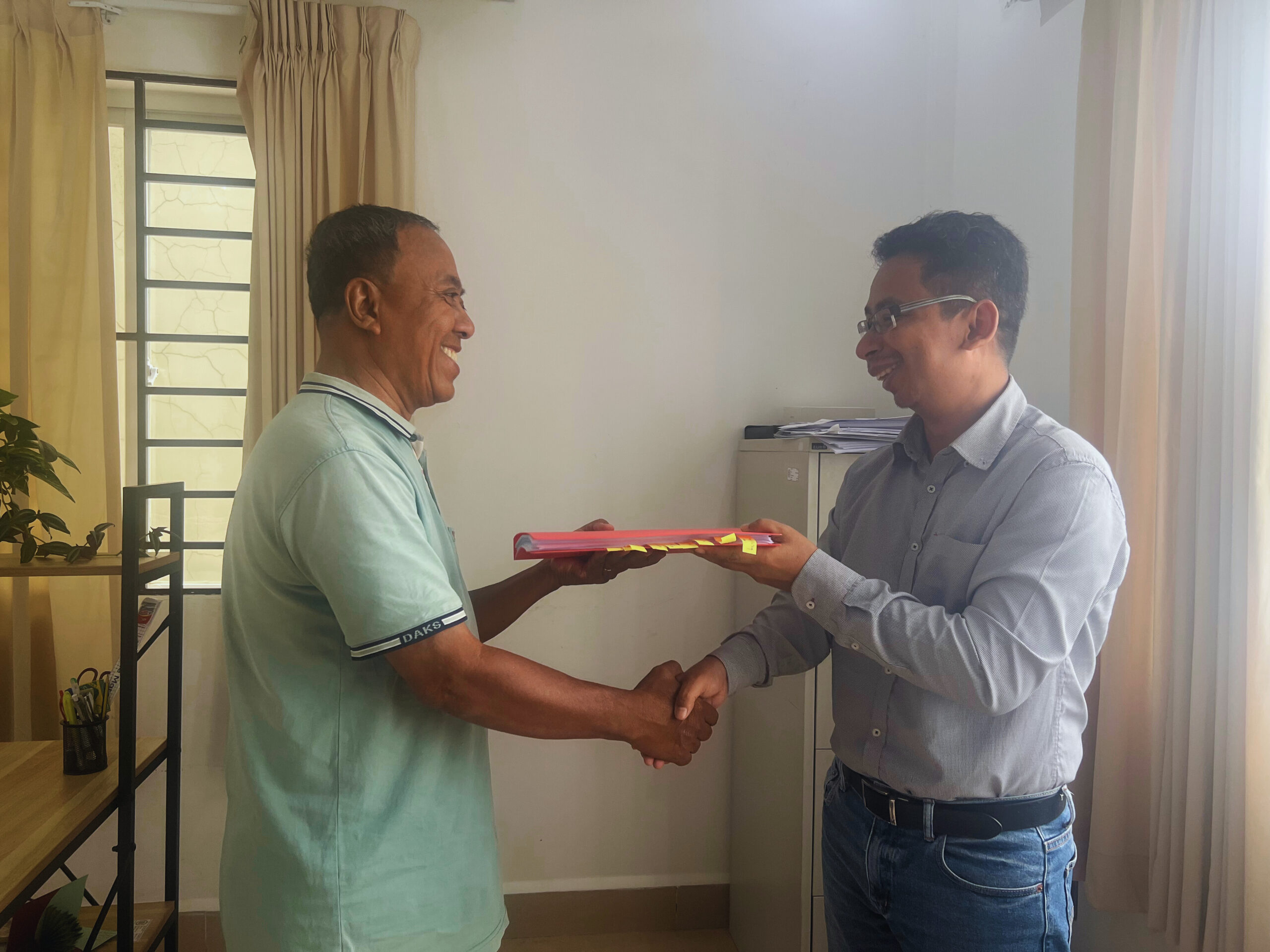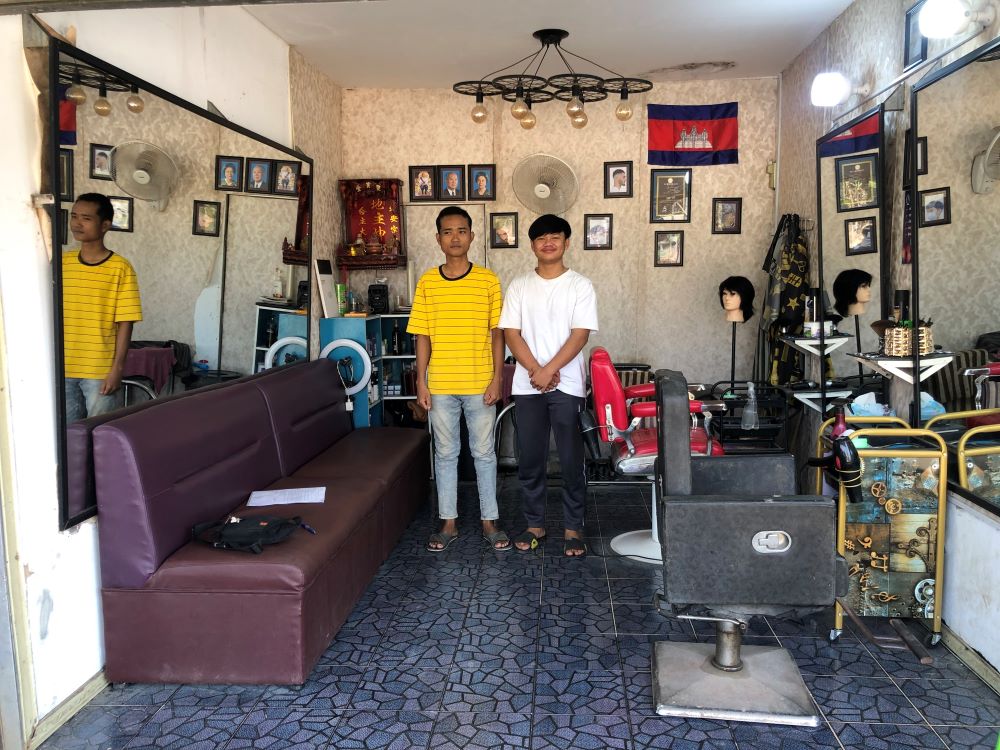The mood is elevated at Damnok Toek Kep on the first Monday back at work after the Pchum Ben holidays. The residents and staff work together with the jovial energy that typically follows a break from work for annual holidays. The residents themselves are particularly happy to welcome back Ieang and Vet, who have just returned from visiting their families in Poipet province. These two residents are held in high regard among the residents and staff at Damnok Toek Kep, and they were eager to share their stories about their travels.
My family could see how happy I was and how much progress I had made. It made me very happy.
-Ieang
Both Ieang and Vet are from Poipet province, located in the top western corner of Cambodia, nearly 600 km away from Kep. Travelling long distances in Cambodia is never as straightforward as Google Maps lets on, and most budget travel requires a stop-off in Phnom Penh. For a major holiday like Pchum Ben, where most people return to their home provinces to celebrate with their families, the roads are hectic, and traffic can increase travel times by a few hours.
For Ieang and Vet, this is all part of the adventure, and they describe their journey gleefully. Both men have made this journey for the past three Pchum Ben holidays without accompaniment from Damnok Toek staff. However, both men remarked that this trip was significantly easier, not inherently, but because each felt increased confidence while travelling.
New Confidence Brings Joy to Travel
Ieang uses a wheelchair, custom-made in a tricycle shape, that allows him better manoeuvrability around the farm and when travelling on the road between Damnok Toek’s project site and Kep town. However, his wheelchair is not designed to be portable and on previous journeys, getting in and out of the taxi has been uncomfortable for Ieang, both physically and socially.
This time, Ieang speaks proudly of his increased independence during the journey saying, ‘People did help me a lot, but I was more comfortable [asking], and I could do a lot more on my own like get in and out and buy food because I had a better understanding [of travelling]’.
Vet, who does not use a wheelchair but has difficulty walking, also noticed the improvements he and Ieang have made as solo travellers. He recalled a painful memory of being cheated on the price of a taxi in a previous year’s trip but said he learned from that incident and, this time, was much more confident asserting himself with drivers.
A Warm Welcome Home
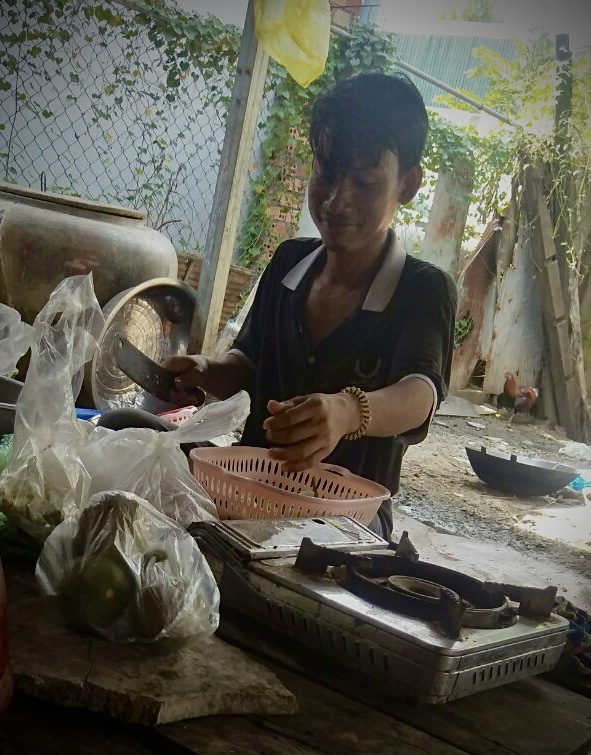
Both men travelled together to Poipet and then spent the holidays with their respective families. For Ieang, this included his brother, aunt and uncle. Vet stayed with his elderly grandmother, who also looks after her own grandchildren as well as other neighbourhood children. Since they only travel back to Poipet once a year, both smiled and laughed as they talked about the reception their families gave them.
‘They were all so surprised and excited, hugging me!’ Ieang said of the initial reunion.
Vet said his grandmother and the neighbours all came out and greeted him happily, saying they wished he visited more often.
Pchum Ben is an important holiday in Cambodia to reunite with family. It is a 15-day celebration honouring one’s ancestors that culminates in a traditional, religious ceremony where people bring food to the pagoda to give to monks in a symbolic gesture that generates good karma for both the deceased and living relatives.
Attending the official ceremony at the pagoda is one of the most important aspects of the holiday and, for Ieang, it was the part of his trip he enjoyed most. ‘I love just being at the pagoda and observing all of the different people and seeing different activities going on.’
Accessibility Remains a Barrier to Travel
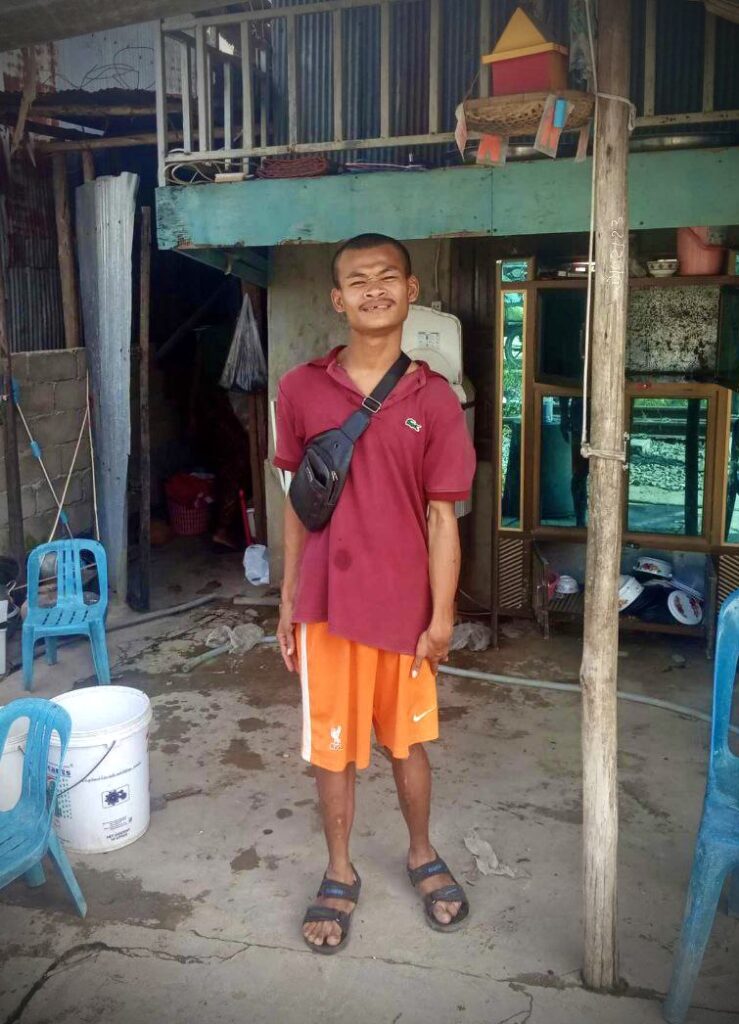
Vet’s grandmother attended the ceremony at the pagoda, but unfortunately, due to recent flooding and dilapidated road conditions, Vet could not physically walk to the pagoda. Without anyone to assist, he stayed behind. Vet described the situation with pain and frustration, upset that, despite his personal progress, a lack of accessible infrastructure continues to be a barrier to inclusion for him.
Both men mentioned accessibility as the main difficulty they faced during their trip. Poipet was badly affected by unseasonably heaving rains, which flooded many communities, especially those in lower-income areas like where Vet and Ieang’s families live. Ieang struggled to get his wheelchair through the mud and often decided to stay at home rather than exhaust himself trying to get around his community. Vet felt similarly, and both said this was a major factor influencing them to not move back to Poipet, even though both wished they could be closer to their families.
Reflecting on Greater Independence With Pride
Fortunately, their neighbours were so excited to have them back and so curious about their lives in Kep that most came around to their families’ homes to visit. ‘People were constantly asking me what my life was like in Kep,’ Vet said. ‘It was nice because this time I could tell them “I live on my own, and I cook for myself and have my own work. I am happy”.’ He credits this new confidence and abilities with his transition to Semi-Independent Living Arrangement earlier this year.
‘My family also has noticed the change in me, which makes me happy,’ he says. ‘They ask me to help with chores more, and I can help out around the house more because I have been living more independently in Kep.’
For Ieang and Vet, they are excited about what the future holds. They are proud of their accomplishments this past year, and having the opportunity to share that with their families was huge. Despite the distance, both men express that they want to travel home more frequently, and, if possible, invite their families to see the lives they have built for themselves in Kep.
